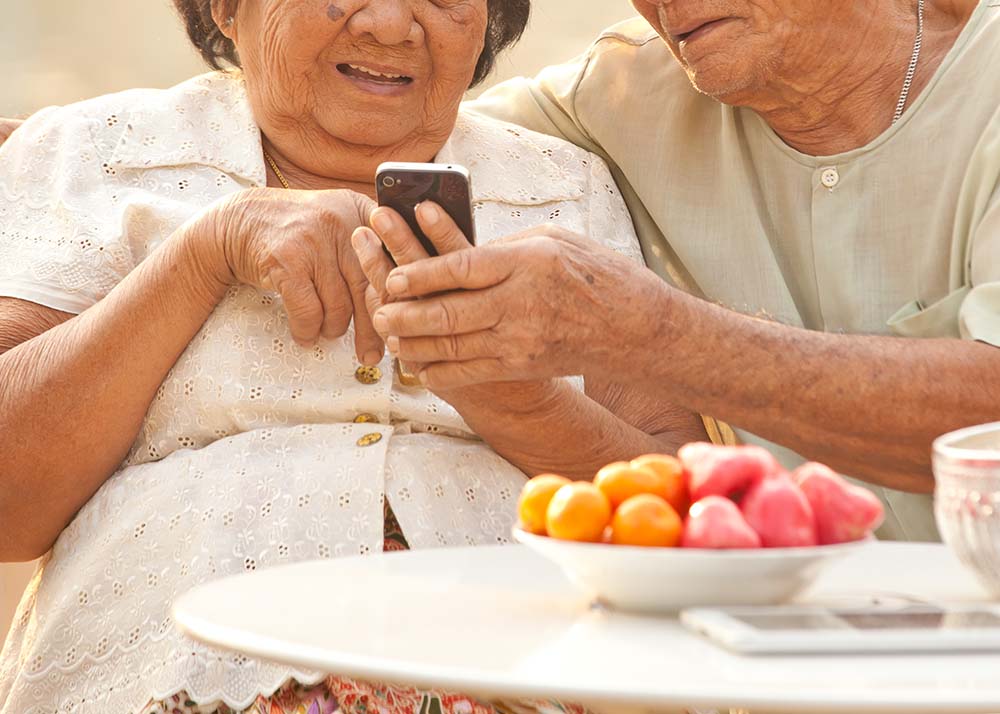Making aging more mobile with new smartphone app
October 16, 2017
NIH-funded MovingUp app developed by Schepens Niemiec will be first of its kind
Awards Chan in the Media Faculty Health and Wellness Research Technology
If the infomercials are to be believed, older adults want cellphones that are anything but smart. With oversized displays and one-touch medical alert buttons, products like the Jitterbug flip phone are simple by design.
But technology usage trends among seniors are changing faster than ever. According to the Pew Research Center, 42 percent of Americans aged 65-and-older own a smartphone. As the digital gap between generations narrows, USC researchers hope to harness the potential of smartphone apps to improve the lives of older Americans.
“We’re looking at a wonderful opportunity for utilizing mobile devices to promote wellness and prevent disease,” said Stacey Schepens Niemiec, assistant professor of research at the USC Chan Division of Occupational Science and Occupational Therapy.
That opportunity will soon be made reality. Thanks to a new $468,000 grant from the NIH National Institute on Aging, Schepens Niemiec and her team of health professionals, engineers and community partners will systematically develop and test MovingUp, a multi-feature smartphone app designed to facilitate older adults’ levels of physical activity.
“Despite its vast potential, mobile health technology for older adults is largely untapped,” Schepens Niemiec said. “More than 90 percent of older adults don’t meet national guideline recommendations for physical activity, and smartphone apps are promising tools that can change health behaviors.”
Yet MovingUp is no run-of-the-mill fitness app.
The USC team will build its components using a combination of empirically-proven constructs from occupational science, psychology and public health research. Three of the five features to be tested include messaging that promotes positive attitudes toward aging, a coach that suggests ways to intensify everyday activities and peer-generated suggestions for activities to combat sedentary time. To date, no other app on the market specifically targets older adults’ activity levels.
Schepens Niemiec will then beta test MovingUp with research participants and crunch the resulting data in order to discover what parts of the app are most effective and why. She sees this study as a critical methodological step for advancing the science of mobile health technology.
“Most smartphone apps lack scientific evaluation, but the research that my team is doing will help to fill this void,” Schepens Niemiec said. “We intend to truly harness this technology’s life-changing potential for older adults.”
⋯






